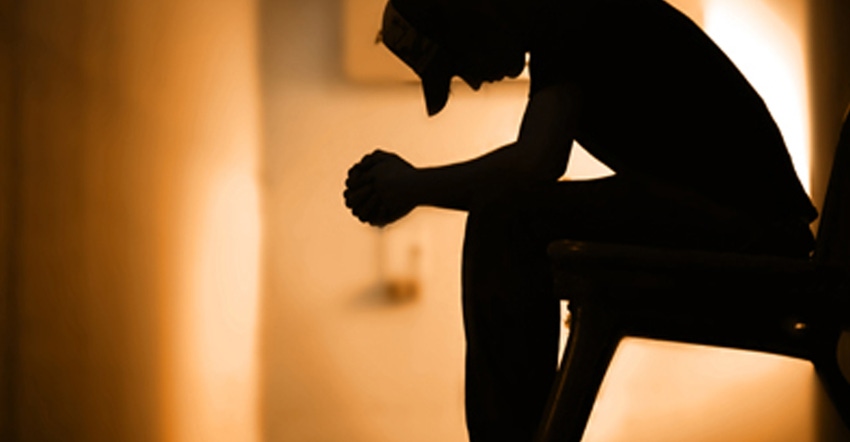December 22, 2016

Over the last 30 years, I’ve had a unique opportunity to work with farmers, family members, ag organizations, health professionals and others to help them deal with issues of stress. Farming is among the most stressful jobs in the U.S., based on factors that affect our financial, physical and mental health. Families on farms and in rural areas often live farther away from key health-care, behavioral health, legal and financial services.
Dealing with stress
There is definite reason for concern — too much unresolved stress over a period of weeks, months or even years is associated with serious health problems (like high blood pressure, heart disease, diabetes and others). When we let stress overwhelm us, it makes decision-making a challenge because the daily flood of chemicals our body produces when we are “stressed out” weakens the parts of our brain that help us make decisions or look at different future scenarios, such as investing time, energy and money to make things better.
Since last fall, we have been doing workshops and seminars across the state on these topics for farmers, lenders, consultants, educators, health professionals and others who work closely with the agricultural industry. Articles and other materials can be found at agsafety.info. These will be updated continuously throughout the year.
As I’ve prepared for these events, and as I have talked with dozens of farmers whose lives are affected by this recent set of challenges affecting agriculture’s future, one of the most useful resources that I’ve taken to heart is an online TED Talk video called “How to Make Stress Your Friend.” TED Talks are short (15 to 18 minutes) inspirational talks by industry and university leaders aimed at spreading new ideas to communities throughout the world. This one has been watched by more than 12 million people, and was done by Dr. Kelly McGonigal of Stanford University.
McGonigal cites a crucial study by researchers at University of Wisconsin-Madison. They studied 30,000 adults from around the country and followed them over eight years. The research team asked these people two questions: How much stress have you experienced in the last year? Do you believe stress is harmful to your health?
Over an eight-year period, naturally some of those 30,000 who participated in the study died. The researchers were able to track who died through public death records.
The researchers learned that of those who passed away, the group that said they had "experienced a lot of stress in the previous year” had a 43% increased overall risk of dying. That is pretty scary, but is actually similar to findings in other studies. But what really shocked the researchers was that this 43% “extra risk” was only true for those people who also told researchers in question No. 2 that they believed “stress is harmful for your health.” People who had a ton of stress in their lives but did not view this high stress level as having potentially harmful health consequences had far less risk of dying. In fact, the high stress/low perception of health impacts had even less risk than those who indicated they had little or no stress!
What was my take-home lesson from this important work?
On farms, there will always be things that cause stress. Markets and interest rates will continue to be on a roller-coaster ride. We won’t be able to control the weather. Family dynamics, challenges with finding good workers and dealing with everyday life will always be present. But those feelings of stress should be viewed as a call to action.
McGonigal says, “When you choose to view your stress response as helpful, you create the biology of courage. When you choose to connect with others under stress, you can create resilience. Stress gives us access to our hearts — the compassionate heart that finds joy and meaning in connecting with others; your pounding physical heart, working so hard to give you strength and energy.”
I like this view! I’ve adopted it in my own life. It requires action. It requires caring for your health. It requires planning and reaching out to tap into the many resources available, whether it’s your veterinarian, accountant, attorney, doctor or minister.
It takes a commitment to stay connected to your family, loved ones and others who care. But the key is to embrace the challenges. Accept the “stress.” Harness it. Use it to your advantage. It’s our body’s and brain’s way of telling us that change is crucial and needed for our survival.
Shutske is an agricultural engineering Extension specialist and a professor at UW-Madison.
About the Author(s)
You May Also Like




